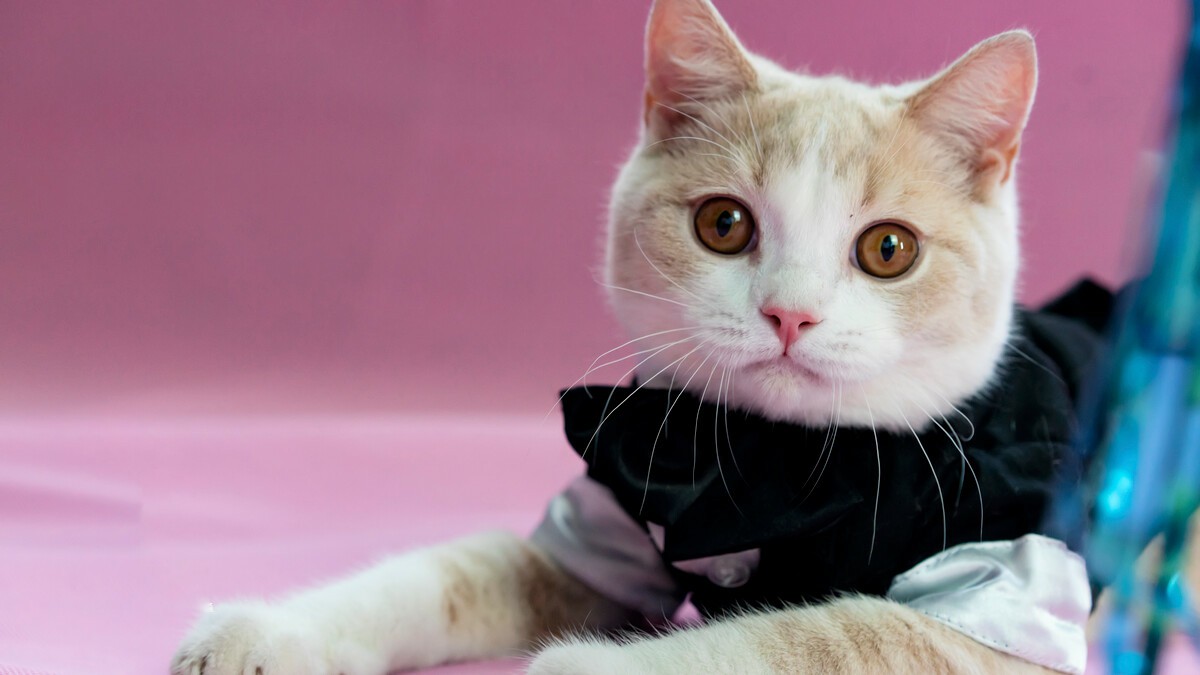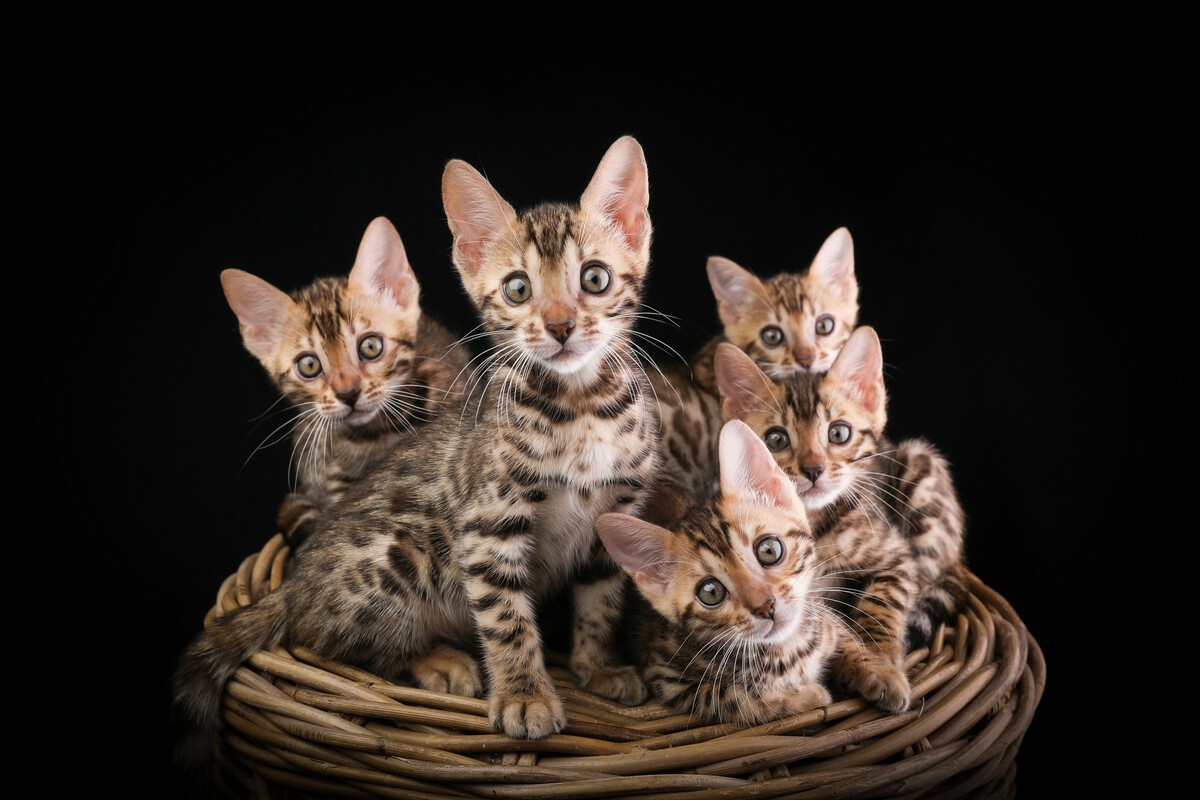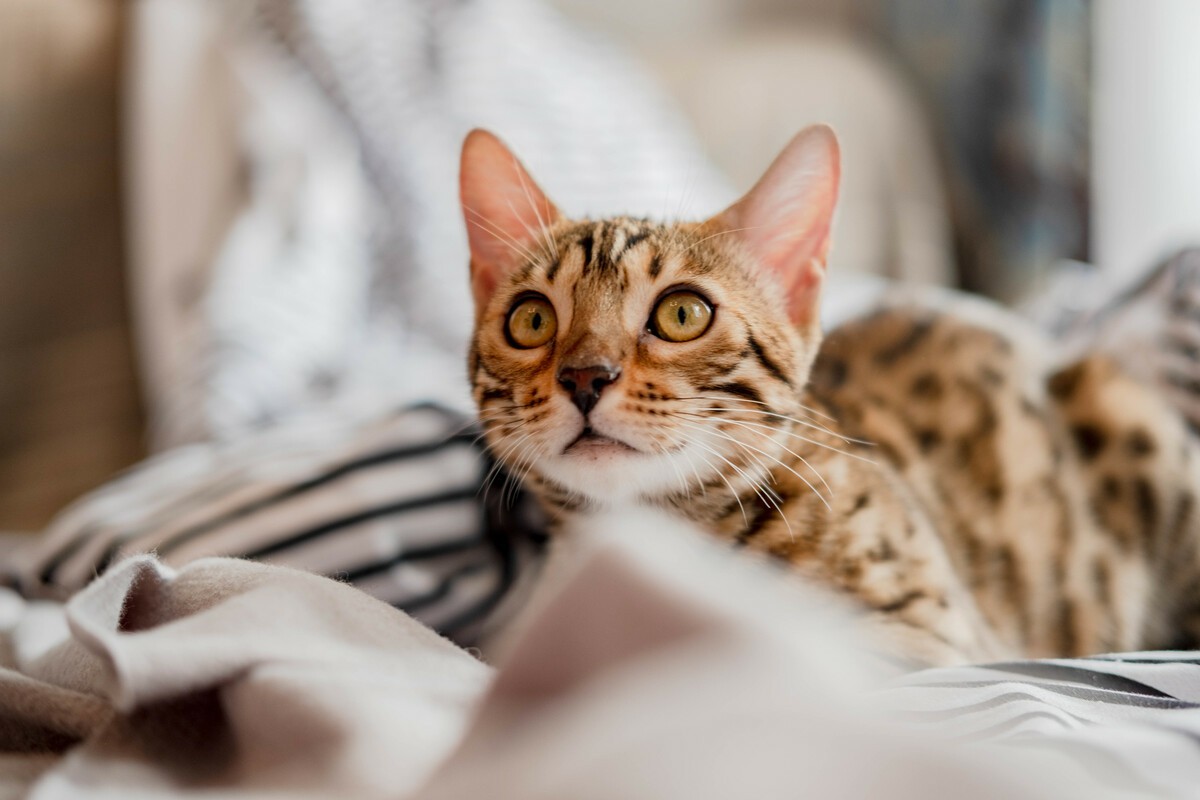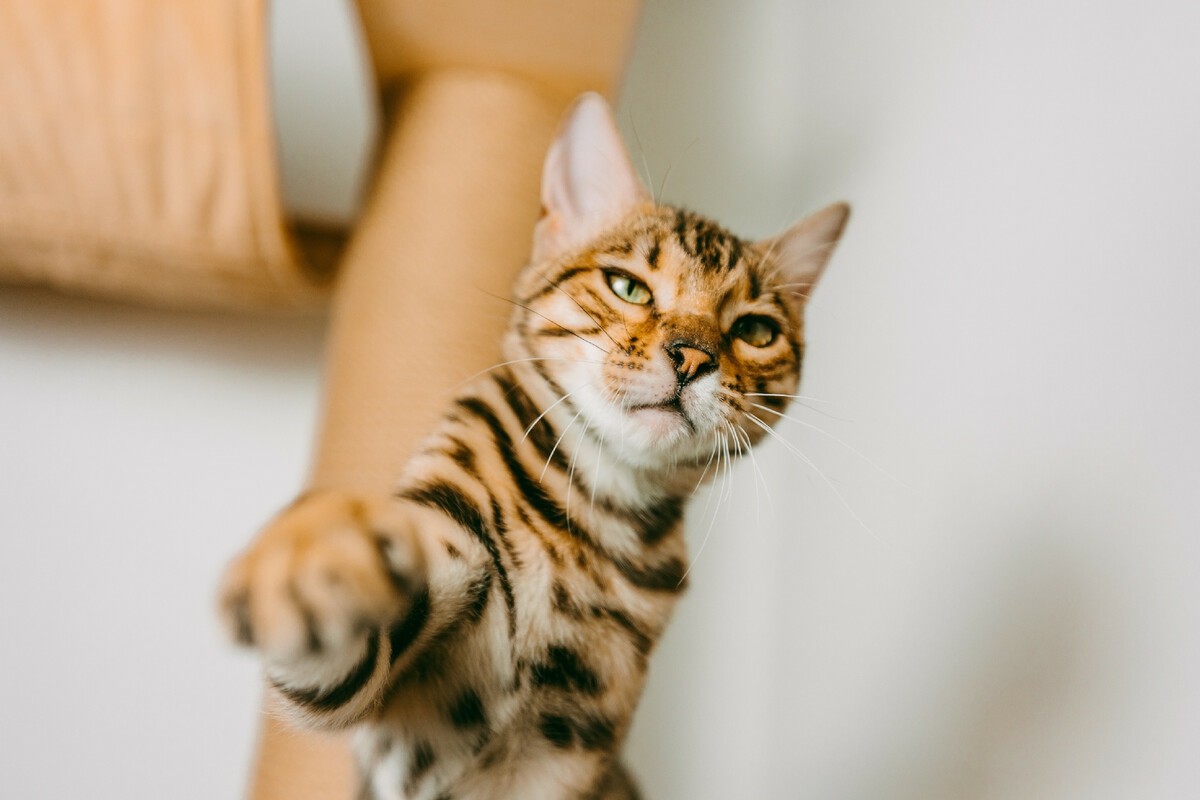Today we shall learn about the British Shorthair Diet, about their meal plan, and what they require throughout the day to stay healthy.
British Shorthairs are a true carnivore, which means a high-protein diet is necessary for them to thrive. However, a proper feeding schedule and balanced nutrients benefit them to be healthier just as for humans.
If you are having trouble feeding your British Shorthair or what kind of food is better, then, Don’t worry! This article is for you. Below, I have tried to provide as much information & guidelines regarding the way of feeding so that you can decide on how and what to feed while maintaining a balance that works between both you and the cat.
How Much To Feed British Shorthair?

British Shorthair does love to eat that depends on its size, level of activity, and type of food. Research suggests that for an average adult British Shorthair, roughly 250-300 calories per day, are ideal. On the other hand, British Shorthair kittens’ have smaller stomachs and higher energy requirements, so they need to be fed more often than adults to help them in their quick growing process.
The adult British Shorthairs, however, often trick or try to convince you of not being fed or to feed them more. Don’t be deceived because you will overfeed them, leading to health problems such as diabetes or overweight.
It is better to follow scheduled feeding than free-feeding because it will slowly make the cat a fussy eater. Moreover, scheduled feeding will help you observe your shorthair’s food intake, and later know how much to feed and also know if your shorthair is not eating properly, which can be a sign of health problems.
You can also follow the feeding guide on the cat food package but be sure it is okay and of high-quality for your British Shorthair.
British Shorthair Diet: What Should You Feed?
British Shorthairs are not picky eaters. Therefore, you can give both wet or a dry cat food diet, and they will be satisfied with any. Premium cat foods with meat-rich, low-carbohydrate & grain-free (such as Royal Canin, Halo, or Nutro) that provide all the moisture and nutrients are considered better, healthier in the long run for British Shorthair.
Moreover, wet food is also a better option for cats who are prone to obesity as they have fewer fillers, so that means there are more usable nutrients for cats.
If you prefer natural food or homemade food, then choose only the foods suitable or recommended by the vet for your shorthairs:
- fat-free dairy products without sour cream, cottage cheese, or yogurt
- raw or boiled meat of chicken, sheep, rabbit(from a good source)
- liver, heart, stomach
- boiled and fresh egg yolk- once a week
- Less fatty sea fish without bones- just 1 to 2 times a week
(Note: Don’t feed your British Shorthair both natural and dry food at the same time, as it can harm their digestive system.)
If you like to know more about the foods that are better for you British Shorthairs and other considerations you should know while feeding, then keep reading to learn more.
Best Cat Foods You can Buy For Your British Shorthair
It is also better to buy and feed professional packaged or canned food for your British Shorthair because it offers guaranteed nutrition, digestibility, safety, and convenience. I have made a table below and tried our best to mention the best cost-effective cat foods you can feed your shorthairs with highlighted features of each.
| Product | Features |
| Halo Wet Canned Cat Food | Made with real WHOLE meat that is more proteinSustainably SourcedGrain-free and quality ingredients sourced from U.S. farms |
| Royal Canin Weight Care Cat Food | maintain weight gainprotein contentMixed with ideal fiber |
| Nom Nom | Contains essential nutrients and digestibleHigh-moisture, low carbohydrateSatisfying and human-grade ingredients |
| Nutro Feed Clean Cat Food | Natural, grain-freeNo artificial flavors or colors.formulated without wheat |
| Wellness Cat Food | healthy fiberRich in highly-digestible proteinhelps maintain healthy hips & joints |
Additional Things You Need To Know About British Shorthair
Your British Shorthairs’ good health does depend on the quantity and quality of food you feed. Moreover, it also depends on its eating habits and preferences. So, proper management is necessary as well instead of just serving whatever to your shorthair. Below are the other considerations to keep in mind and apply so that you can protect your British Shorthair from illness.
Water Consumption
Water is an essential part of a cat’s diet, and typically, kittens need between 3.5–4.5 ounces of water while the average adult cat should be drinking 7-9 ounces of water. However, some cats don’t drink enough water due to their low thirst drive-by nature, which leads to developing kidney or urinary tract diseases. To prevent this from happening, you can increase your shorthairs’ water intake by:
- Feeding wet canned food as it contains 60%-70% water or giving a premium food mixed with some additional water
- Buying a cat water fountain, as studies say that running water will encourage them to drink or by adding ice cubes on its bowl water
- Having multiple bowls placed throughout the house and cleaning the bowels daily to have fresh water.
Homemade Food and Raw meat diet
You can prepare food for your British Shorthair yourself at home as long as it’s meat-based, nutritionally balanced, and free of potentially harmful ingredients. It can be a bit time-consuming – but it is not difficult or complicated to make if you can follow a variety of simple recipes as they enjoy different flavors. You can find more information about carefully designed cooked recipes on the Internet.
Concerning raw meat, you should be cautious of feeding it because raw food tends to carry bacteria that could be extremely harmful to your shorthairs. Nowadays, cat owners are considering a BARF (biologically Appropriate Raw Food) diet for their pets, consisting of raw fresh meat to match a cat’s natural diet. Still, it is better to consult the vet to get suggestions on raw meats for your British Shorthair.
Food Allergies
British Shorthairs are likely to have food allergies that an owner should be aware of and pay attention to. Licking the affected areas, scratching, vomiting, and frequent ear infections are the most common signs. Commonly, the legs, belly, face, and ears are very likely to have this problem with a noticeably thinner or shortened hair in those areas or red, sore skin lesions.
Some home food you give can have allergens that are harmful to your shorthairs, and one must recognize it so that the cat can get available treatment as soon as possible.
Your British Shorthair Diet Plan

It is better to establish an appropriate diet plan for your shorthair to be healthier and stick with it until the need for change. British Shorthairs are meat eaters, and their stomachs can only digest small amounts of carbohydrates. So, it is necessary to feed your shorthair a diet that is high in animal-based protein. Also, balanced ingredients to get the proper nutrition for your shorthair to stay happy and healthy.
(Note: You can consult with the vet to be more sure about choosing the proper diets for your British Shorthair.)
To make your shorthair diet plan easy, I have made the following process you can get started with:
Make a Meal Time Schedule
The feeding schedule helps you to figure out how much to feed your British Shorthair and even will help your shorthair cope when there are changes in the foods. When your shorthair is used to schedule eating, its body adapts to expect food at those same times each day. So you don’t have to worry about when or at what time to give your shorthair food.
The mealtime schedule also makes it easier to observe the eating habits of your shorthair’s and will alert you to any changes like increase or decrease in appetite, lack of disinterest in some food, etc.
Try To Feed The Adult British Shorthairs Two Times a Day
British Shorthairs love to eat, but they tend to become fat if you let them eat when they want. For this reason, at least two meals -morning and evening per day are best for your British Shorthair. For some time, they will protest, or they will trick you into not being fed but remember you are working toward a healthy feeding schedule.
Feed Lots of Animal-Based Protein
British Shorthairs are obligate carnivores, which means that by nature, your shorthair gets its nutritional needs more from the consumption of animal-based proteins like meat than plant-based proteins like grains or vegetables. It also means their metabolic systems cannot utilize plant proteins as efficiently as animal proteins.
Avoid Feeding Too Many Carbohydrates
Every cat in their natural setting, would not consume the high level of carbohydrates like grains, potatoes, peas, etc and so with the British Shorthairs too. It is recommended to serve your shorthair, high-moisture, meat-based diet, with a moderate level of fat and with only approximately 1-2 percent of carbohydrates containing food.
Wet Canned Food Better than Dry Food
Cats by nature do not get enough water, so they need to ingest a water-rich diet. Therefore, Wet food is better for cats when choosing as it meets a cat’s nutritional needs better than dry food. Most importantly, the cat’s bowl should be cleaned every time after serving wet food since it can build up bacteria. However, be beware of the very low-quality wet food in the market.
Some Human Foods Can Be Feed Sometime
You can give small pieces of fresh rinsed meat or fish for your shorthairs as treats. Boiled eggs, fat-free dairy products, and sweet potatoes can be fed too to your British Shorthairs. However, there are many human foods your shorthair should not eat, including chocolate or spices.
Meal, Free, and Combination Feeding: Which is The Best Method?
Meal feeding means you are only providing both canned or dry foods to your British Shorthair at only specific times during the day. This way, you can closely monitor your shorthair food intake, and it will be easy to change their diet nutrition as their preference.
Free Feeding means the food is available for your shorthairs at all times during the day. Keeping in mind that wet food should not be left for a long time as it can be a place for bacteria. This method will lead your shorthair to have its way and can eat anytime it wants.
Combination Feeding is giving your shorthair canned wet food twice per day and dry food available throughout the day. It is like free feeding, allowing your shorthair to eat on her own. Also, your shorthair can get the nutritional benefits from both wet and dry food.
So, what do you think?
For us, Comparing the three, Meal feeding might be better than the other two methods. British Shorthairs are prone to weight gain, so free-feed is putting them more at risk of health problems. With the meal feeding method, you are feeding your British Shorthair the right quantity of food to maintain its body condition (following feeding guidelines). Also, serving to its preference regarding wet or dry food recipes.
So, if you want your British Shorthair to have a balanced and active life, then meal feeding is much healthier.
What Not To Feed British Shorthair?
Though British Shorthairs love to eat different food, many foods are toxic to them. That causes some serious health problems and even shortening their lives. Here is a list of foods which British Shorthair should not eat:
- fatty meat (pork, lamb/sheep) can damage the cat’s liver
- food from your table (smoked, fried, sour, spicy, or containing a sauce)
- Chocolates, Sweets in general
- Soy, gluten
- Alcohol
- Dogs food
- Fatty fish could infect your British Shorthair with parasites
- Corn, high carbohydrate food
Conclusion
British Shorthair is cat breed with a gentle & loyal nature, and so they deserve the proper care and diet with high-quality nutrition. Without the regular feeding schedule, you are more likely to put your shorthair’s health in danger by overfeeding. So, make a schedule and stick to it instead of free-range feeding. It’s even better to consult the trusted professional vet about your shorthair health, habits, and suggestions on a food diet.





Pingback: Do British Shorthairs Get Fat? - MOOKNOW CAT
Pingback: How Much Water Should British Shorthair Needs To Drink In A Day? - MOOKNOW CAT
Pingback: Why Should Your British Shorthair Have Its Teeth Cleaned? - MOOKNOW CAT
Pingback: 15 Recommended Supplies For New British Shorthair [101 Guide] - MOOKNOW CAT